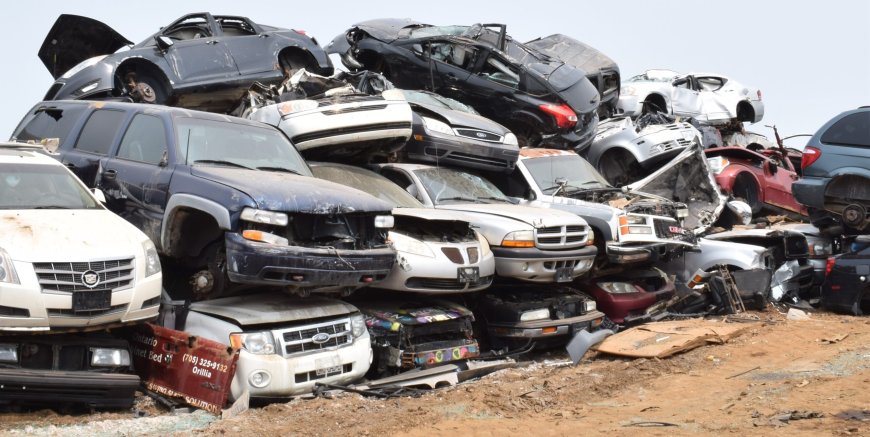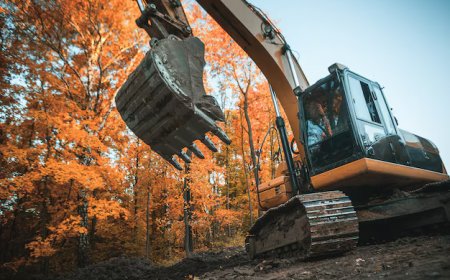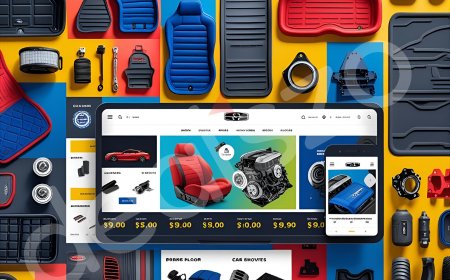Why Junkyards Are the Unsung Heroes of the Automotive Industry
Discover how junkyards support sustainability, resource reuse, and community savings in the automotive industry. Learn why Car Wreckers Townsville plays a vital role.

The automotive world often celebrates shiny new cars and cutting?edge technology. Yet, there is an undervalued backbone that supports this industry quietly: the junkyard. These facilities play a vital role in recycling, cost savings, and environmental care. Here, we explore their importance.https://northcoastwreckers.com.au/
1. How Junkyards Save Parts and Materials
When a vehicle reaches the end of its use, many components remain functional. Junkyards carefully remove these partslike doors, mirrors, engines, and electrical componentsand refurbish them for resale. This practice extends the life of vehicle parts and supports sustainable use.
Consider metal, for instance. A single vehicle can contain over a ton of steel. Instead of sending it to landfill, that steel is crushed, melted, and reused. This reduces demand for new mining and manufacturing, which in turn lowers carbon emissions and energy consumption. According to industry data, recycling steel requires only around 25 percent of the energy used to make new steel. This is a significant saving for the planet.
2. Providing Savings for Vehicle Owners
A major benefit of junkyards is the cost savings they offer. Owners looking for replacement parts can often find what they need at a fraction of the cost of brand-new parts. For example, a used radiator or transmission from a junkyard can cost 30 to 60 percent less than a factory-new counterpart.
These savings can be important for cash?conscious car owners, hobbyists restoring classic vehicles, or farmers maintaining older machinery. Affordable parts help stretch budgets and make repairs more feasible, especially when factory parts are no longer in production or hard to find.
3. Reducing Waste and Landfill Pressure
Each year, millions of vehicles reach the end of their usable life. Without recycling, most would end up in landfill. Junkyards help prevent this by dismantling vehicles and responsibly managing hazardous fluids like oil, coolant, and refrigerant. They ensure fluid is drained correctly, and parts such as batteries are recycled safely.
By reusing, refurbishing, and recycling parts and materials, junkyards help shift the automotive industry toward a circular economy. This model prioritises reuse and recycling over disposal, lowering the environmental impact of car ownership and manufacturing.
4. Local Economic Impact
Junkyards create jobs in communities. From dismantling vehicles to selling parts and offering towing services, they employ skilled and semi-skilled workers. They also support small businesses like independent mechanics, who rely on affordable used parts to offer competitive repairs.
In regions like Townsville, Car Wreckers Townsville plays a role in boosting the local economy. Independent repair shops, farmers, or private owners benefit from access to second?hand parts, keeping small?scale businesses thriving.
5. Supporting Classic Car and Off?Road Enthusiasts
For those restoring vintage cars, finding original parts can be a challenge. Junkyards often become treasure troves for classic parts no longer manufactured. Similarly, people who own off?road vehicles or older models depend on used parts to keep their vehicles roadworthy.
Junkyards can also provide rare components that maintain originality in restoration projects. A single dashboard or trim piece can not only be functional but hold sentimental or historical value for collectors.
6. Enhancing Innovation and Education
Junkyards provide resources for learning and innovation. Technical training programs often use salvaged vehicles for hands?on lessons. Students studying automotive mechanics can practise dismantling and rebuilding using real components. This practical exposure helps build skills that may not be gained solely from textbooks.
Hobbyists and inventors benefit as well. Many DIY projects begin with parts sourced from junkyards. Creative solutions, such as budget electric vehicle conversions or home?built modifications, often rely on affordable used components.
7. A Natural Promotion for North Coast Wreckers
Local operators are key players in this sector. One such example is a team of specialists offering removal and reuse services for end?of?life vehicles. They handle environmental compliance, save vehicle owners money, and support small businesses with used parts.
Their service helps keep Townsville free of abandoned cars. They also ensure that fluids are drained, hazardous materials are handled properly, and reusable parts are offered to the community. This local, reliable partner exemplifies how junkyards contribute to sustainability, safety, and cost savings.
8. The Role of Regulation and Compliance
Strict rules govern dismantling and recycling. These include managing emulsions, oils, and batteries. Certified businesses must follow guidelines to avoid soil and water contamination.
Proper decommissioning of vehicles ensures safety and environmental protection. Junkyards must dispose of liquids and parts according to legislation, which brings accountability and transparency to the process.
9. Future Opportunities for Junkyards
Junkyards have chances to grow in importance. Electric vehicles (EVs), for example, contain valuable materials like lithium, cobalt, and nickel. When EV batteries reach end of life, recycling them helps recover these materials and reduces the need for new mining.
Advanced sorting techniques and automated dismantling systems may increase purity and value of recycled parts. As the world moves toward sustainability, junkyards will become key players in resource recovery and waste reduction.
10. How You Can Get Involved as a Consumer
-
Choose used parts: For repairs, consider used components first. They work for many vehicles and save money.
-
Support certified recyclers: Use businesses that follow environmental and safety standards.
-
Properly dispose of old vehicles: Do not abandon cars. Arrange removal with a reputable operator.
-
Ask questions: Know if parts are tested, come with any guarantee, or have warranty periods.
Final Thoughts
Junkyards quietly support the automotive industry. They prevent waste, protect the environment, and offer savings. They are a key part of a sustainable system for vehicle repair and recycling. As the industry evolvestoward electric vehicles and material recoverytheir role will only grow.
By choosing used parts and supporting regulated dismantlers, communities benefit environmentally and economically. When you think of vehicles, remember there is an entire infrastructure working behind the sceneshelping keep cars on roads, materials in circulation, and our footprint smaller.

























